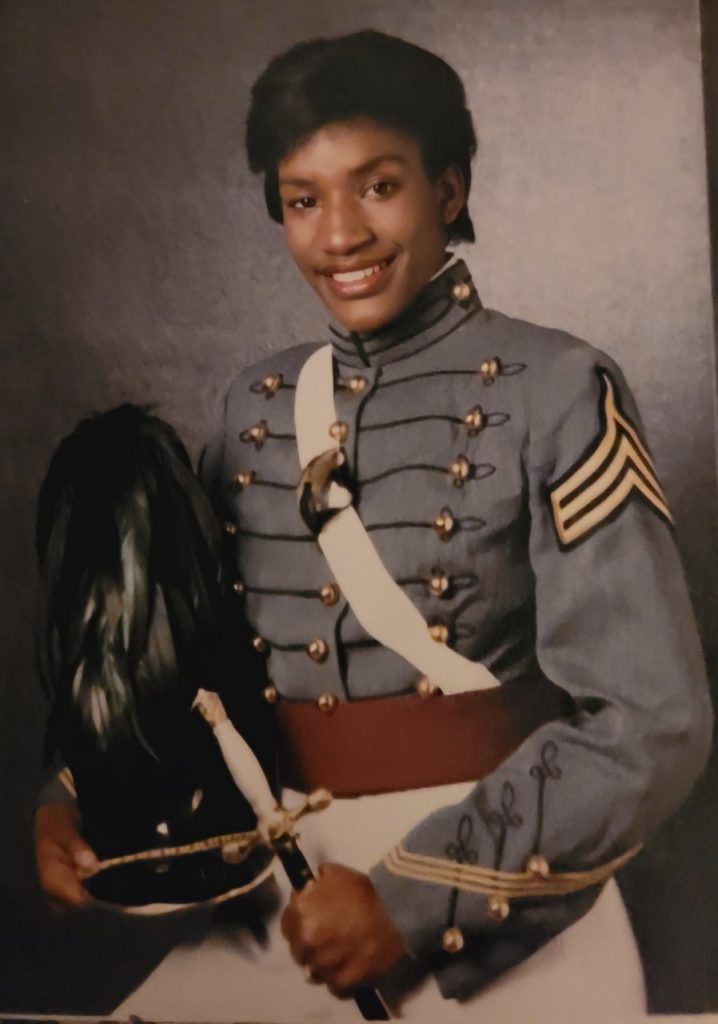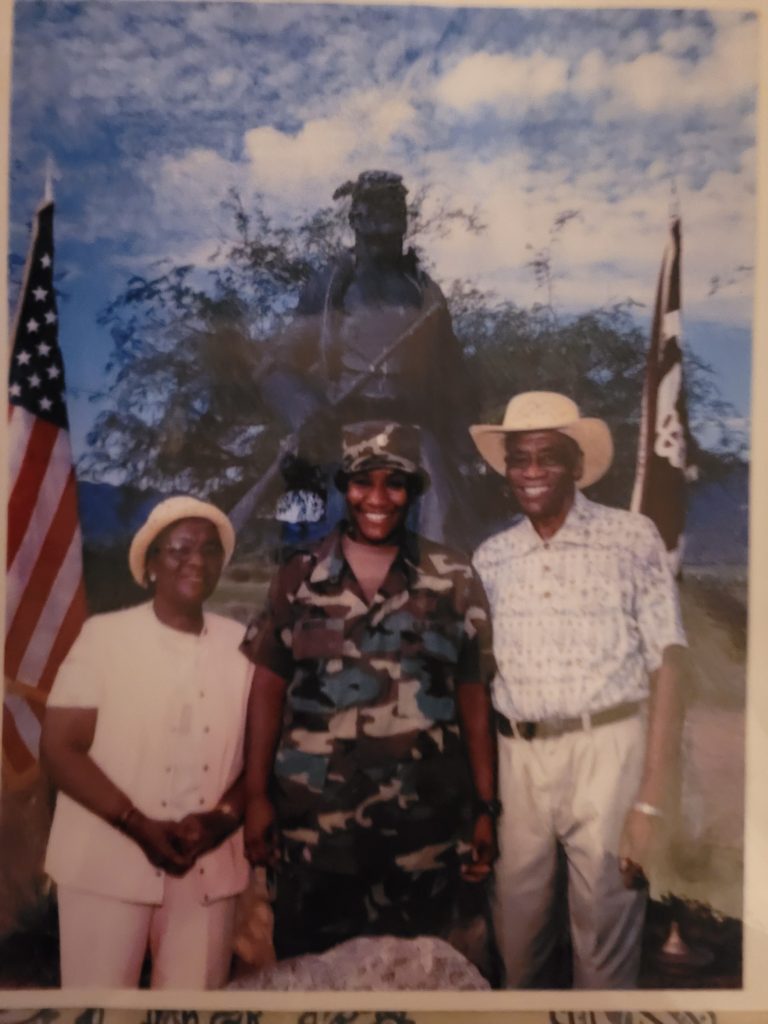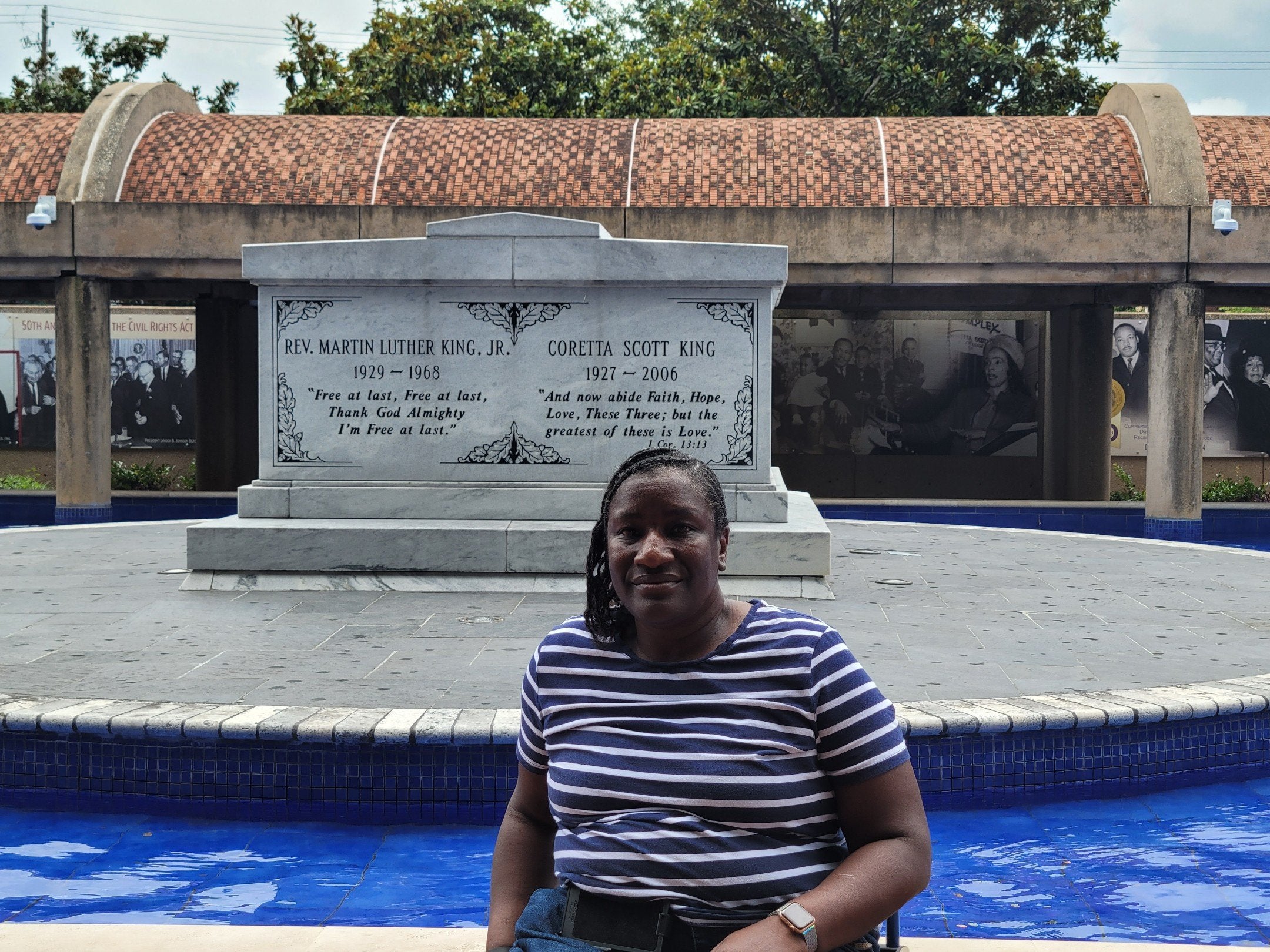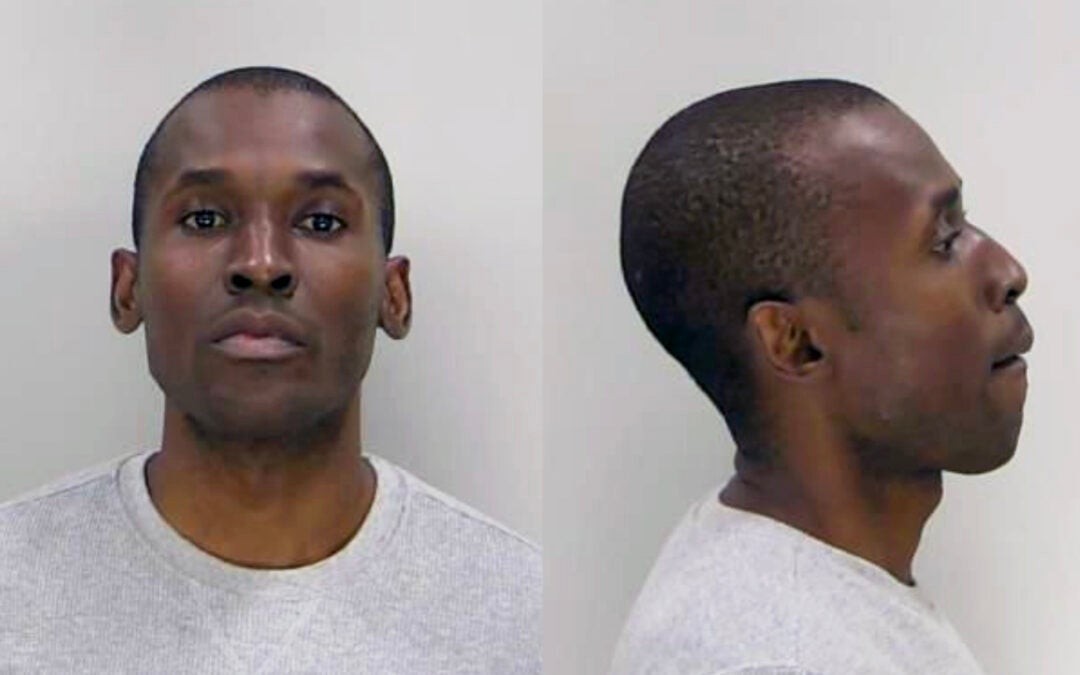At Arlington National Cemetery, members of the U.S. 3rd Infantry Division guard the Tomb of the Unknown Soldier.
Dressed in their pristine uniforms, the soldiers take turns walking their 21 steps in front of the tomb. At regular intervals, once an hour from Oct. 1 through March 31 and every half hour from April 1 to Sept. 30, the guard is changed in a formal ceremony.
Lisa Maddox was an Aquinas High School junior in 1984 when she visited Washington, D.C. with her Girl Scout troop during spring break and watched the moving, time-honored ceremony for the first time.
It was there that her life changed forever.
“I remember thinking I wanted to do something to make sure people had the same opportunities to do and be whatever they wanted that I had,” said Maddox.
The decision to go to a military academy was solidified when a student in the class ahead of hers was accepted into the U.S. Naval Academy at Annapolis, Md. While she first considered the Navy, she ended up receiving an appointment with the help of the late U.S. Rep. Doug Barnard (D-Ga.) to the United States Military Academy at West Point.

Maddox’s aspiration was to become a doctor.
Her mother, Mattie, had few career options open to her when she was growing up. She could become a nurse or a teacher. While she wanted to be a nurse, Lisa Maddox said her mother almost fainted at the sight of blood, so teaching it was.
“For her, becoming a doctor or a lawyer meant you’d made it,” she said.
Attending West Point was rigorous both academically and physically.
MORE: Veterans Day Salute: Gail Erlitz
At a recent reunion, she said she discovered she wasn’t the only one in her class who thought West Point equated leadership ability with running ability.
“I could do the push-ups and sit-ups,” she said.
But it was the running she had a hard time with. She always felt like she couldn’t quite catch her breath. There was a reason for that. She was diagnosed with asthma after graduating. It was also at West Point that she’d sustain a knee injury requiring surgery, the first of many she’d endure.
[adrotate banner=”51″]
The first group of women graduated from West Point in 1980. The Army loves statistics, she said, so she offered a few of them.
“I was the 813th woman to graduate, the 910th black student to graduate and the 73rd black woman to graduate,” she said.
After graduating, she spent a couple of years in military intelligence. Then she headed to medical school at the University of Pittsburgh. She wanted to work in orthopedics but that wasn’t a good fit at the time, she said.
Her last assignment was at the Aberdeen Proving Ground in Maryland. She got out of the Army in 2004. She returned into the private sector and began a career in the civilian world.
In 2010, she began a residency program and later returned home, taking a job in rehabilitation medicine at the Charlie Norwood VA Medical Center.

The job was something she could relate to her patients with. Multiple knee surgeries left Maddox with a chronic pain syndrome, and she eventually had part of her leg amputated.
While she was in the military during Operation Desert Storm and the war in Iraq and Afghanistan post the Sept. 11, 2001 terrorist attacks, she was never deployed, but she wanted to be.
After all, that was what all her leadership training was for, she said.
She saw a shift in the way the military did business post 9/11.
Desert Storm, she said, had a more traditional way of fighting. A battle line was drawn with the enemy on one side and the Americans on the other. That completely changed in Iraq particularly where the battlefield was an urban setting and the enemy could be anywhere,” she said.
MORE: Veterans Day Salute: Mike Strauss
In the early 2000s, women still weren’t supposed to be in combat, she said. There was one problem with that rationale.
“Nobody told the enemy that,” she said.
As a result, Lori Piestewa (who was promoted to Spc. posthumously) became the first female combat casualty. Piestewa was part of a support unit charged with bringing supplies and was killed in a convoy.
The enemy knew attacking the supply chain was an effective tactic as it would interrupt the mission of American troops, Maddox said.
“You can’t fight without bullets,” she said.
Now retired, Maddox is involved in wheelchair tennis and wheelchair curling. The former high school basketball player still has Paralympic aspirations.
Charmain Z. Brackett is the Features Editor for The Augusta Press. Reach her at charmain@theaugustapress.com













